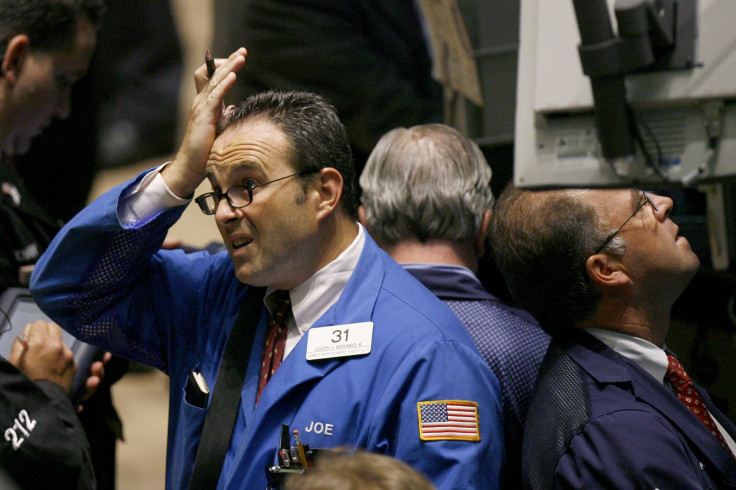Friday's U.S. Stock Market Open: Equities Soar As Coronavirus Relief Package Nears

KEY POINTS
- Stocks recorded a record slide Thursday as they slipped deeper into bear territory on coronavirus worries
- Central banks in China, Japan and Australia made dramatic moves Friday
- The U.S. announced plans to ramp up testing for the virus
Update: noon EDT
Markets lost steam after their exhuberant open but remained on the upside at noon as traders awaited President Trump's scheduled news conference and congressional action on an emergency response.
At noon, the Dow Jones Industrial Average was up 425 at 231,504. The S&P 500 was up 44 to 2,525 and the Nasdaq was up 114 at 7,316.
European markets closed mixed. The London FTSE 100 gained 1.18% while the German DAX fell 0.36% and the French CAC 40 edged up 0.89%. The Stoxx Europe 600 was up 0.64%.
Crude oil futures were trading at $31.32 while Brent crude was at $33.14. Gold was at $1,533.30.
Update: 9:55 a.m. EDT
Within a half hour of the open, the Dow gave up more than two-thirds of its early gains, falling back to 21,743.
Original story
Traders jumped back onto the roller coaster Friday following the historic drop in U.S. markets Thursday, sending stocks higher at the open on word of a possible agreement between the White House and House Democrats on coronavirus relief measures.
The Dow Jones Industrial Average opened up 1,253.38 points to 22,473.44, wiping out nearly half of Thursday's loss. The S&P 500 was up 141.71 to 2,622.45 and Nasdaq gained 448.43 to 7,650.24.
The administration early Friday announced steps to speed testing for the virus, which has infected more than 125,000 worldwide, killing at least 4,613. In the U.S., at least 1,700 confirmed cases have been reported along with about three dozen deaths.
The U.S. testing effort has been denounced as inadequate. The Food and Drug Administration announced a hotline Friday for laboratories finding it difficult to get testing materials or other issues, and nearly $1.3 million was awarded to two companies to develop a rapid result test that can deliver a result in an hour.
The People’s Bank of China cut reserve requirements, and the Bank of Japan said it would buy bonds worth 200 billion yen ($1.9 billion). The Reserve Bank of Australia pushed the biggest cash dump in seven years into funding markets, and the European Central Bank indicated it could shorten bond spreads and cut interest rates further.
House Speaker Nancy Pelosi and Treasury Secretary Steven Mnuchin held talks Thursday on a relief package that includes free testing, 14 days of sick leave, Medicaid funds, enhanced unemployment benefits and food aid.
"It's fair to say we're close to an agreement, subject to the exchange of paper, and hope to have an agreement tomorrow," Pelosi told reporters Thursday.
The economy, however, still was likely to slip into recession as shutdowns sweep the country and the world.
“We’re in an environment characterized by an enormous amount of uncertainty from the virus, oil price wars and the sheer wealth effect of markets falling as dramatically as they have done,” Philip Saunders, co-head of multiasset at Investec Asset Management, told the Wall Street Journal.
On Asian markets, Hong Kong’s Hang Seng closed off 1.14% while Japan’s Nikkei dropped 6.08% and China’s Shanghai fell 1.25%. Australia’s S&P/ASX gained 4.42%.
In midday trading in Europe, London’s FTSE 100 soared 6.6% while the German DAX was up 6.61% and the French CAC gained 7.57%. Italy’s FTSE MIB jumped 15.23%. The Stoxx Europe 600 was up 6.79%.
Crude oil futures were up 4.1% at $32.79 a barrel and Brent crude gained 3.91% to $34.52. Gold was off $2 to $1,588.30.
© Copyright IBTimes 2025. All rights reserved.






















